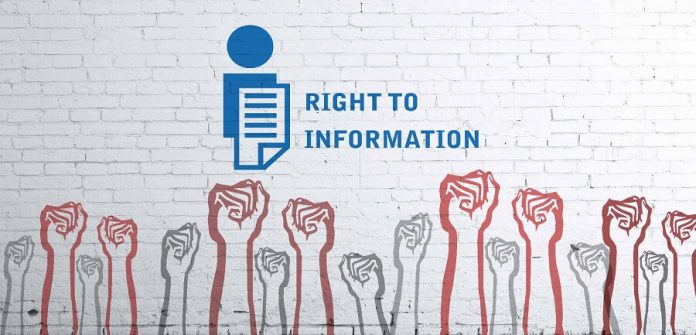Right to Information Act, 2005

Evolution of the concept of the Right to Information
The Global perspective
Sweden
On December 2, 1766, Sweden passed the world’s first Freedom of Information Act, 1766. In Sweden, this statute established press freedom, with those at stake including the government, courts, and parliament. As a result, Sweden’s constitution acknowledged that press freedom is dependent on access to information.
France
Article 14 of the French Constitution states that “all people have the right to determine, by themselves or via their representatives, the necessity of a public tax, to voluntarily consent to it, to monitor its use, and to set its proportion, basis, collection, and duration.”
The United Kingdom
Since the olden days, democracy has been the fundamental precept of England, but secrecy rather than openness is emphasised. This is due to the legislature’s and the executive’s natural desire to enshroud policies rather than make them clear. The Freedom of Information Act of 2005 was passed in England. However, the current law is based on the Official Secrets Acts of 1911, 1920, and 1939. The English judiciary has endorsed government transparency. The House of Lords’ ruling in the case of Conway v. Rimmer, 1968, established its jurisdiction to require the publication of any document. It was also urged that a balance be maintained between the competing goals of secrecy and publicity. Lord Steyn’s statement in the case of R. v. Secretary of State for the Home Department, Ex P. Simms, (2000) demonstrates the importance of freedom of expression in English law:
“Freedom of speech is the lifeblood of democracy.” Political discourse is informed by the free movement of information and ideas. It serves as a safety valve; individuals are more willing to accept choices that go against them if they may, in theory, try to alter them. It functions as a check on public officials’ misuse of authority. It allows the uncovering of flaws in the country’s administration and the delivery of justice…”
The United States
America is the oldest democracy in the world and hence often used interchangeably. America appears to be the torchbearer of a variety of democratic rights that should be part of a truly democratic framework. The same is true for information distribution. Antipathy toward intrinsic secrecy is thus not a characteristic displayed by Americans. According to Schwartz, “Americans genuinely believe in the beneficial benefits of exposure and have a strong aversion to the inherent secrecy of government entities.” RTI is granted by two major statutes: the Freedom of Information Act of 1966 and the Administrative Procedure Act of 1946. The right to information is not directly addressed in the United States Constitution. However, such a right is regarded as a consequence of the First Amendment freedoms. In the case of Lamont v. Post Master General (1965), the Supreme Court decided that a legislative provision constituted a restraint on the unrestricted exercise of First Amendment rights and so declared it unconstitutional. Similarly, in Stanley v. Georgia (1969), it was established that free speech safeguards the right to acquire information.
The United Nations
In 1946, the United Nations General Assembly issued a resolution on freedom of information that declared, “Freedom of information is a basic right that underpins all of the freedoms to which the United Nations is dedicated.” The right to gather, communicate, and publish news everywhere and everywhere is implied by freedom of information. As such, it is a vital aspect in any genuine endeavour to encourage the peace and growth of the world.
The Indian perspective
In India, the Right to Information (RTI) movement was launched at the grassroots level in the 1990s by an organisation called the Mazdoor Kisan Shakti Sangthan. The initiative began with the goal of increasing transparency in village accounting. It arose as a result of the demand for minimum wages in rural regions. Despite the fact that Mazdoor Kisan Shakti Sangthan was a rural poor struggle, it captured the attention and support of a cross-section of the country’s media, lawyers and jurists, academicians, and even bureaucrats and legislators, many of whom gathered to form the National Campaign on the People’s Right to Information (NCPRI). The government of India formed a working committee led by consumer rights activist H.D. Shourie to prepare laws for the government’s consideration. The Government-appointed Working Group in 1997 was known as the “Shourie Committee” since it was led by former bureaucrat and consumer rights campaigner H.D. Shourie. It broadened the scope of exclusions to allow public agencies to withhold material whose publication would be detrimental to the public interest.’ Because public authorities would thereafter be entitled to delay the publication of incriminating evidence in the name of the public interest, this one phrase effectively broke the back of the entire Act. The previously mentioned important Section, which said that only information that can be denied to parliament or the legislature can be kept from the citizen, was not included.
In July 2000, the Shourie draft was revived with significant amendments and introduced as the Freedom of Information Bill, 2000. In 2002, the Freedom of Information Act was passed. Right to Information (RTI) is an Act of the Indian Parliament that establishes the current regime of people’s right to information and supersedes the previous Freedom of Information Act of 2002. This law was enacted by Parliament on June 15, 2005, and went into effect on October 12, 2005. Subject to the provisions of this Act, all citizens have the right to information. Public authorities are required to disclose information. Public Information Officers serve as the intermediary between the information seeker and the public authority.
Need for Right to Information
Encourages people to participate
The majority of government work is done for the people, so they must be included in the planning process and be aware of how things are done. People must be well informed about the essence of the projects and programmes in order to participate in planning processes and make decisions about whether specific plans and schemes are beneficial to them. This will allow them to provide their feedback well in advance of any desired updates or alterations. This will significantly lower project expenditures while increasing project outputs.
Transparency
There is an assumption that everything done by the government is done for the public good—that is, it is done to serve the goal of public well-being, it is done honestly, and to maximise the advantages of the money utilised. However, as we all know, abuse, misappropriation, and reckless use of public funds have weakened this presumption significantly. To counteract this, it is critical that all public interactions are completely transparent. This is bound to result in more cautious use and allocation of funds. Transparency will also assist individuals in holding authorities responsible for misusing public time and money.
Limiting the discretionary powers granted to officials
Officials have the ability to misuse their discretion in order to serve multiple political or some other private interests, in addition, to misappropriating funds. In the lack of legislation governing the right to information, they are often kept secret. Although it is feasible to seek judicial action to force the disclosure of this information, impoverished individuals or villagers are unable to do so due to the expense, distance, and delays in the process. Another issue is the lack of openness in the selection process for public officers. The hiring of ineffective government officials contributes to the government’s inefficiencies and problems. As a result, the right to knowledge is critical to preventing the abuse of administrative discretion and ensuring a fair process.
Ensures the principle of accountability
India has a democratic system of governance in which the government is administered for the benefit of the general public rather than for the advantage of one or a few individuals. As a result, the government from the rural level to the national level must be accountable to the citizens. Citizens have a right to know what the government is up to. A Right to Information would guarantee that individuals can hold public authorities responsible on a regular basis, rather than putting the whole responsibility on their elected representatives, who are frequently unable to obtain the information sought while having all the tools at their disposal.
Increases the effectiveness of media
Even if the government guarantees the right to information, residents rely on media like newspapers, radio, and television for day-to-day information on government activities. The media serves as a conduit between citizens and their government. As a result, it is critical that the media have access to information. The right to information from the media is not a separate right, but rather a component of the public’s right to know. The media has several challenges as a result of their lack of access to government information. When main sources of information are suppressed, balanced reporting becomes impossible. They deliver biassed news, hiding or distorting facts in the lack of precise information. By granting the right to information, the media and the general public would work together to hold the government more accountable.

The best law firm in NYC! They explain everything to you and they are very generous and helpful. The lawyers are excellent and very respectful. I highly recommend the Avvocato law firm.